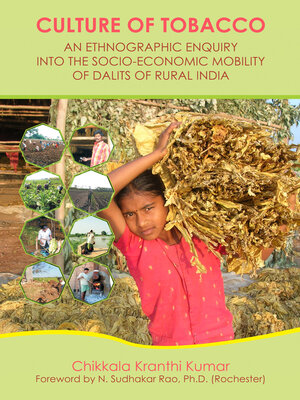Culture of Tobacco
ebook ∣ An Ethnographic Enquiry into the Socio-Economic Mobility of Dalits of Rural India
By Kranthi Kumar Chikkala

Sign up to save your library
With an OverDrive account, you can save your favorite libraries for at-a-glance information about availability. Find out more about OverDrive accounts.
Find this title in Libby, the library reading app by OverDrive.



Search for a digital library with this title
Title found at these libraries:
| Library Name | Distance |
|---|---|
| Loading... |
Despite the global outcry against the harmful effects of tobacco products, this crop continues to thrive and has become a major source of income for all associated with its production process. This book presents an informative perspective on the impact of tobacco cultivation on the socio-economic fabric of rural Andhra Pradesh. The adoption of commercial crops has created phenomenal opportunities for millions and changed traditional social relationships. Tobacco cultivation differs from that of other cash crops in the sense that it is more labour-intensive, provides higher wages and, due to the multifarious activities involved in the tobacco industry, assures farm labourers of almost round-the-year employment in some form or another.This book explains the reasons for socio-economic disparities between two villages using a comparative method. In one of the villages studied, tobacco is being extensively cultivated and its effect on the socio-economic fabric is clearly visible. In the other village, there is hardly any tobacco cultivation and the quality of life of the residents, in terms of material prosperity, educational levels of the children and political empowerment, is no match to that of their counterparts residing in the other village. The villages are almost equal in area, have agriculture as their main economic activity and persons of almost the same castes reside in both. Today, one can still find cases of prosperity, surrounded by deserts of neglect, deprivation and destitution. The task of ensuring a better deal to struggling farmers is indeed challenging, but certainly not impossible. Thus, the book should prompt concerned decision makers to re-examine agricultural policy, both at the national and state levels, so that farmers have an assumed source of income throughout the year, their genuine grievances are properly heard and addressed, and they are saved from falling into financial difficulty.The book is interdisciplinary in nature and will be useful to scholars, practitioners, policy makers and students of anthropology, sociology, economics, rural and agrarian studies, regional and area studies, gender studies and development studies.







